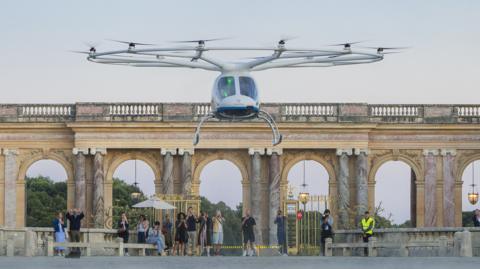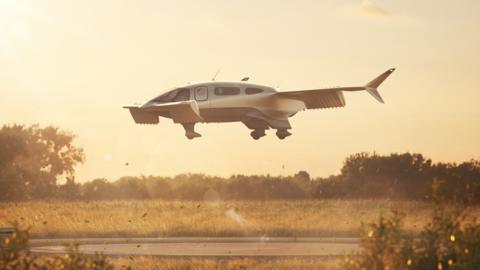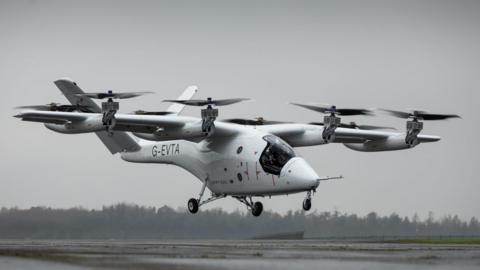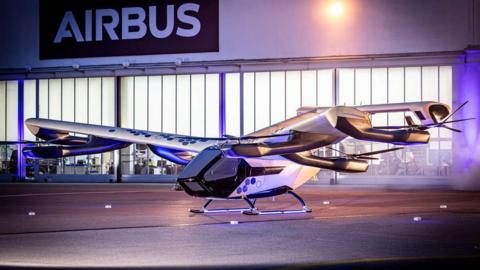One of the innovations at this year's Paris Olympics was supposed to be an electric flying taxi service.
Germany's Volocopter promised its electric-powered, two-seater aircraft, the VoloCity, would be ferrying passengers around the city.
It never happened. Instead the company ran demonstration flights.
While missing that deadline was embarrassing, behind the scenes a more serious issue was playing out - Volocopter was urgently trying to raise fresh investment to keep the firm going.
Talks to borrow €100m (£83m; $106m) from the government failed in April.
Now hopes are pinned on China's Geely, which is in talks to take an 85% stake in Volocopter in return for $95m of funding, according to a Bloomberg report. The deal could mean that any future manufacturing would be moved to China.
Volocopter is one of dozens of companies around the world developing an electric vertical take-off and landing (EVTOL) aircraft.
Their machines promise the flexibility of a helicopter, but without the cost, noise and emissions.
However, faced with the massive cost of getting such novel aircraft approved by regulators and then building up manufacturing capabilities, some investors are bailing out.



